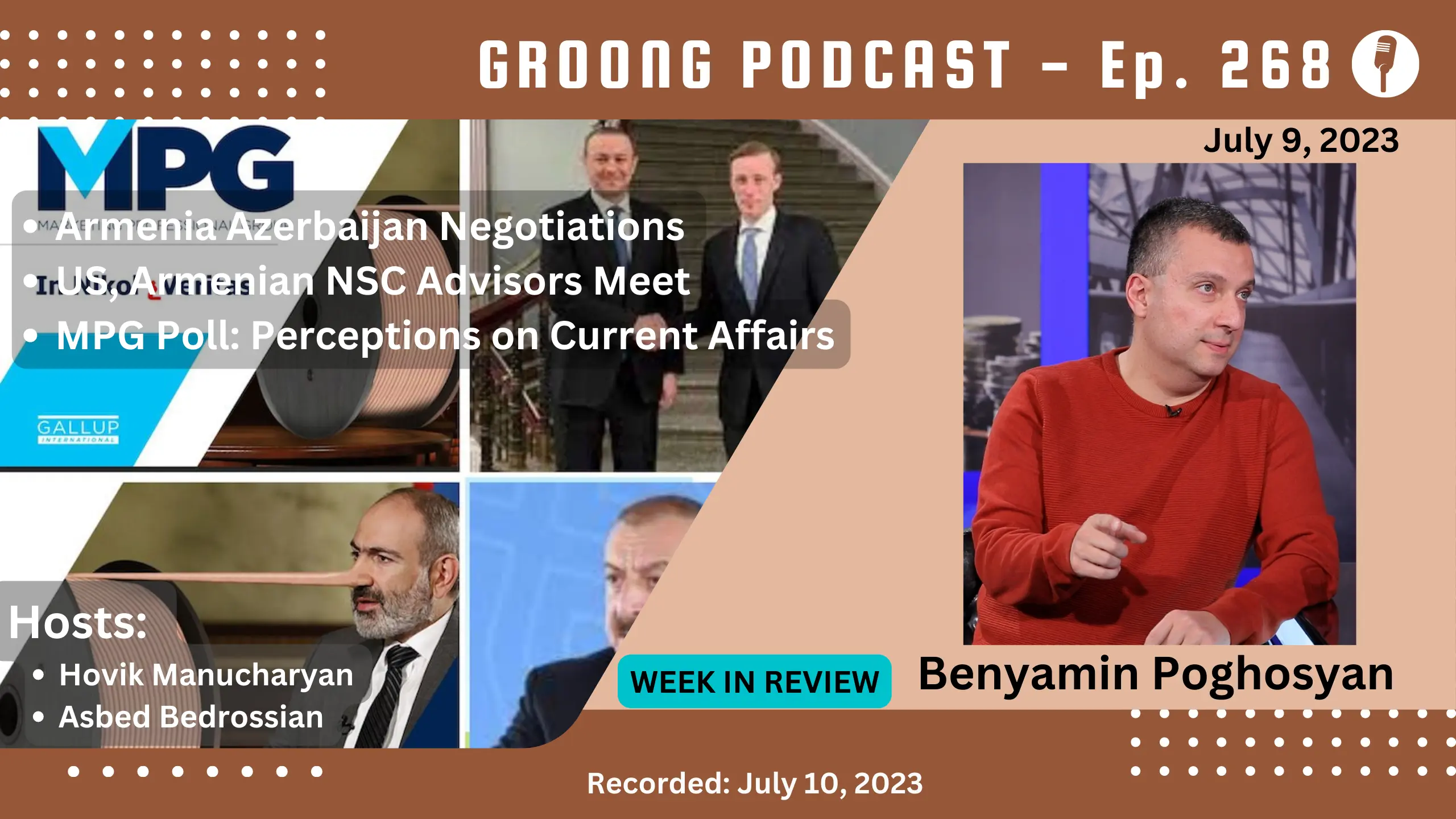
Guest:
Topics:
- Armenia Azerbaijan Negotiations
- US, Armenian NSC Advisors Meet
- New MPG Poll
- Haya-Qve [.am]
Episode 268 | Recorded: July 10, 2023
Show Notes
Armenia Azerbaijan Negotiations
There was hardly any progress reported by any of the sides two weeks ago in DC. Since then we’ve learned that a month ago in June, Artsakh authorities rejected a US invitation to hold Baku-Stepanakert dialog in Washington.
The US agenda for this so-called dialog was evident in ambassador Kristina Kvien’s comments on Armenian Public TV, that Artsakhtsis could live under Azeri rule. Stepanakert criticized her for “appeasing the oppressor” and “predetermining the outcome” of the talks. Kvien tried to explain her words, but a lot of damage has been done to her political capital.
Questions:
- Given the current circumstances, what are the available options to the authorities in Stepanakert?
- Why did Pashinyan call Putin on Constitution Day, July 5, reportedly upon Artsakh president Arayik Hauryunyan’s request? What did they talk about?
If a mediator shows even 10% of the pro-Armenianism that the US has recently shown in pro-Azerbaijani one-sidism, Azerbaijan would have walked out of the negotiations. Witness here how much ruckus they are making about France being pro-Armenian, even as France explicitly says that they will not come to Armenia’s military aid in case of Azeri attacks!
For example:
- The US welcomed Aliyev’s threat-laden speech that included the possibility of amnesty if we beg hard enough.
- EU’s Toivo Klaar applauded temporary provision of gas that was meant to taunt Artsakh Armenias and hurried to use the term Khankendi (in parallel with Stepanakert). Then he offered regrets as the Azeris shut off the gas again hours later.
Question:
- How is it that the Pashinyan regime continues to negotiate with mediators who are reportedly pressuring them into concessions that degrade Armenian national security and interests?
As noted, Azerbaijan does not accept France as a mediator at this point because they consider them “too pro-Armenian”. French FM Catherine Colonna has recently made strong statements that any peace accord must contain “firm security guarantees” ensured by “international mechanisms”, but they have also been clear that they can not help militarily.
France is not the only Western power that is not able to help Armenia in military matters. This week, Alen Simonyan announced that Armenia was denied military aid from a special fund available for boosting EU partners’ defense capacity.
Questions:
- Can we unequivocally say that the collective West, for example members of NATO and members of EU won’t be providing Armenia military aid anytime soon, especially as this war in Ukraine continues?
- Why is there so little appetite in the west to support Armenians? Is it due to the US’s zero-sum game vs. Russia in the Caucasus?
- Is it wise for Armenians, especially those in the Western-funded NGO circles, to present the west as a potential replacement for Russian weapons?
US and Armenian NSC chairs Meet
This past week, following the summit between Ararat Mirzoyan and Jeyhun Bayramov, the US and Armenian NSC chairs, Jake Sullivan and Armen Grigoryan, met in Washington. Reportedly they discussed “the security situation and challenges in the region and the wider region,” as well as “bilateral relations”. Probably by “wider region” they mean the Ukraine theater, and we also know that James O’Brien, the US official coordinating sanctions on Russia was in Armenia.
Questions:
- Can you unpack this for us? What did the NSC chairs talk about? Mirzoyan was there just a week before and met Sullivan. Why so many back-to-back meetings?
- There was even a comment I read that the Armenian government thinks that relations with the US are reaching a strategic level. To say the least, that seemed a bit odd, maybe deluded, to us.
- Pashinyan announced that the text of the so-called “peace agreement” is not ready for signing. Would the gaps in the peace agreement be something that is discussed at the NSC level? Or do you believe the visit was related more to US-Armenia bilateral relations?
Poll on Perceptions of Current Affairs
MPG recently polled the Armenian public on a number of issues in current affairs, on the occasion of the half-year mark of the #ArtsakhBlockade. We’ll focus on a few of the questions and results. Check the show notes for the slides and results.
Who is to Blame for the Artsakh Blockade?
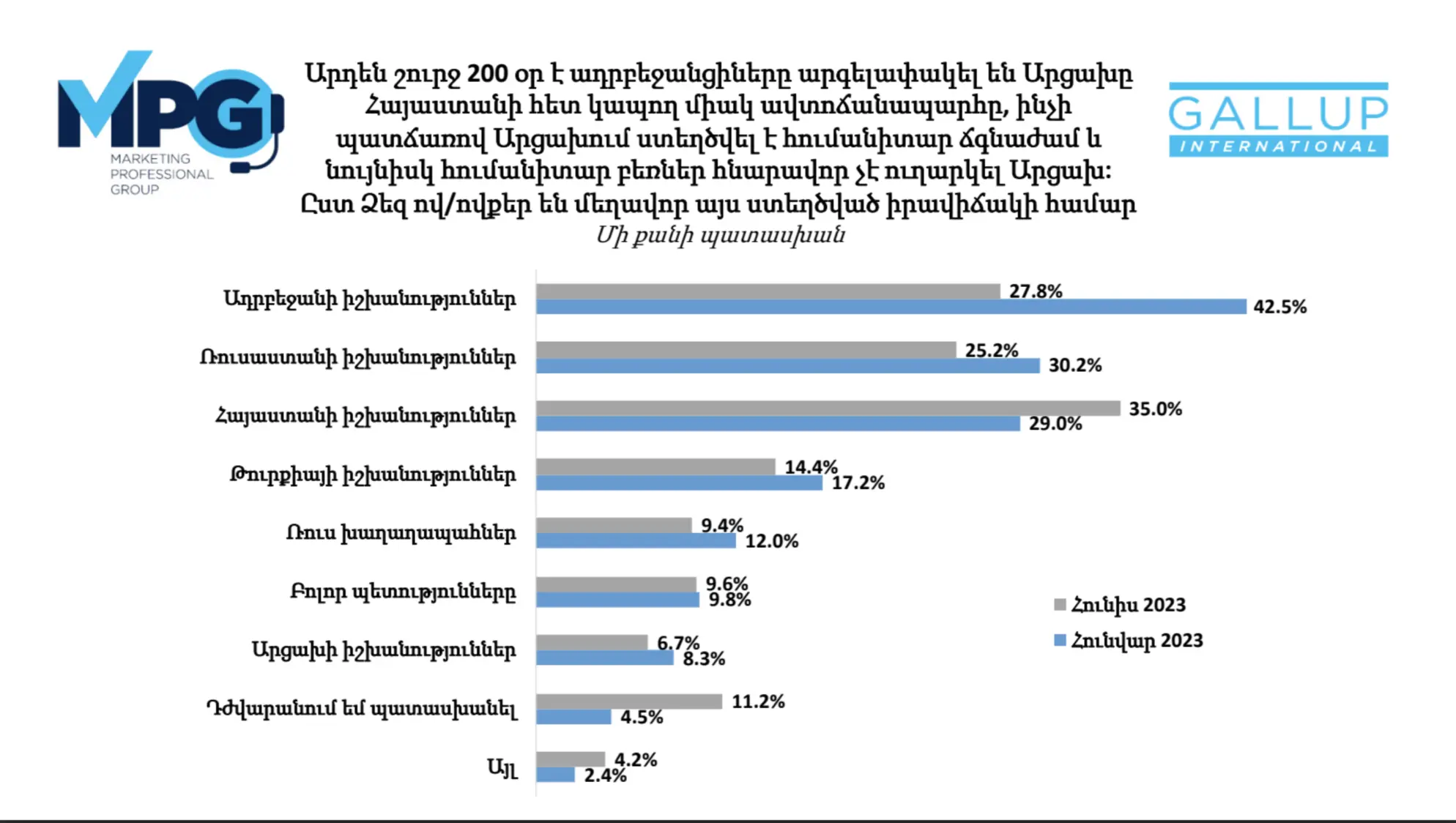
On the questions about who is responsible for the current conditions of the Artsakh Blockade, it seems like people have started to take a “fool me once shame on you, fool me twice shame on me” attitude. Six months ago people put greater blame on Azerbaijan, Russia, Turkey and others for the terrible situation in Artsakh, but polls now show a rising perception among the Armenian people that the Armenian government itself is responsible for not doing anything to alleviate the situation after 200 days.
Questions:
- Does this indicate rising discontent among the people towards Pashinyan’s ruling party? In other polls we’ve seen some of the lowest approval ratings for his Civil Contract party.
- So far the Armenian government mostly appeals to other governments, world organizations, and NGOs, and complains about Azeri violations, and it has also filed successful suits at the ICJ. What do people expect the Armenian government to do?
Potential for Azerbaijani Military Action
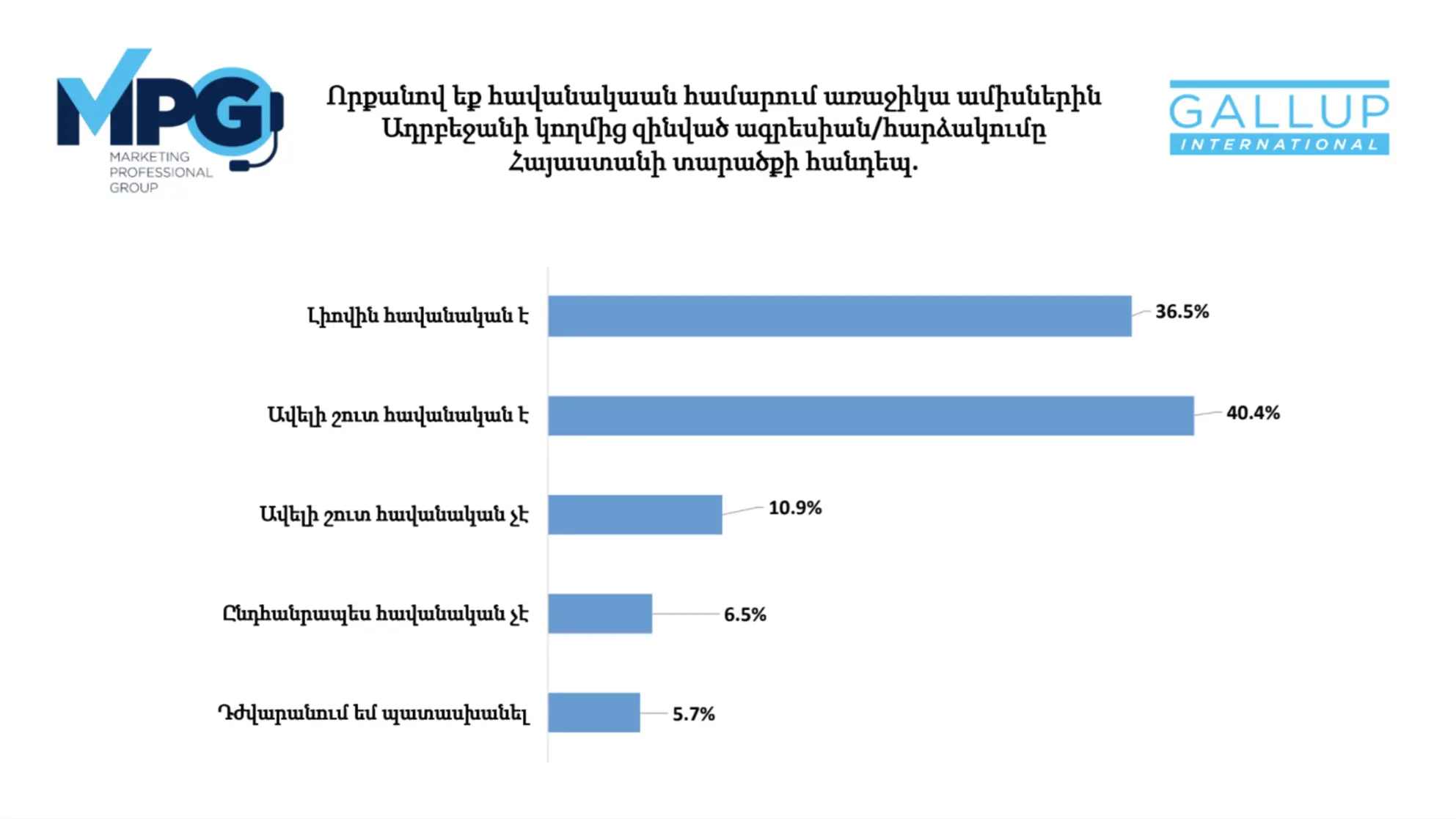
77% of respondents think that the potential for an Azeri attack in the coming months is high. Yet, as we’ve discussed in many shows, Armenian soldiers either in Armenia or Artsakh die in border shootings almost every week, and Armenia has not done anything about it since the 2020 war to stop or punish such aggressions; there is no evidence that Armenia is rearming and replenishing its armed forces; there is no evidence that it is making any alliances that can help defend it, in fact the current ruling party has fully alienated its strategic allies and neighbors, Russia and Iran. Meanwhile, the west has explicitly stated that they will not help militarily, in case of Azerbaijani or Turkish attacks.
Questions:
- Poll results indicate that the population has sobered up to the geopolitical realities. What are your thoughts on these results?
- How is it that people continue to tolerate the current regime leaving them wide open and insecure, between enemy countries?
Who Will Help in case of War?
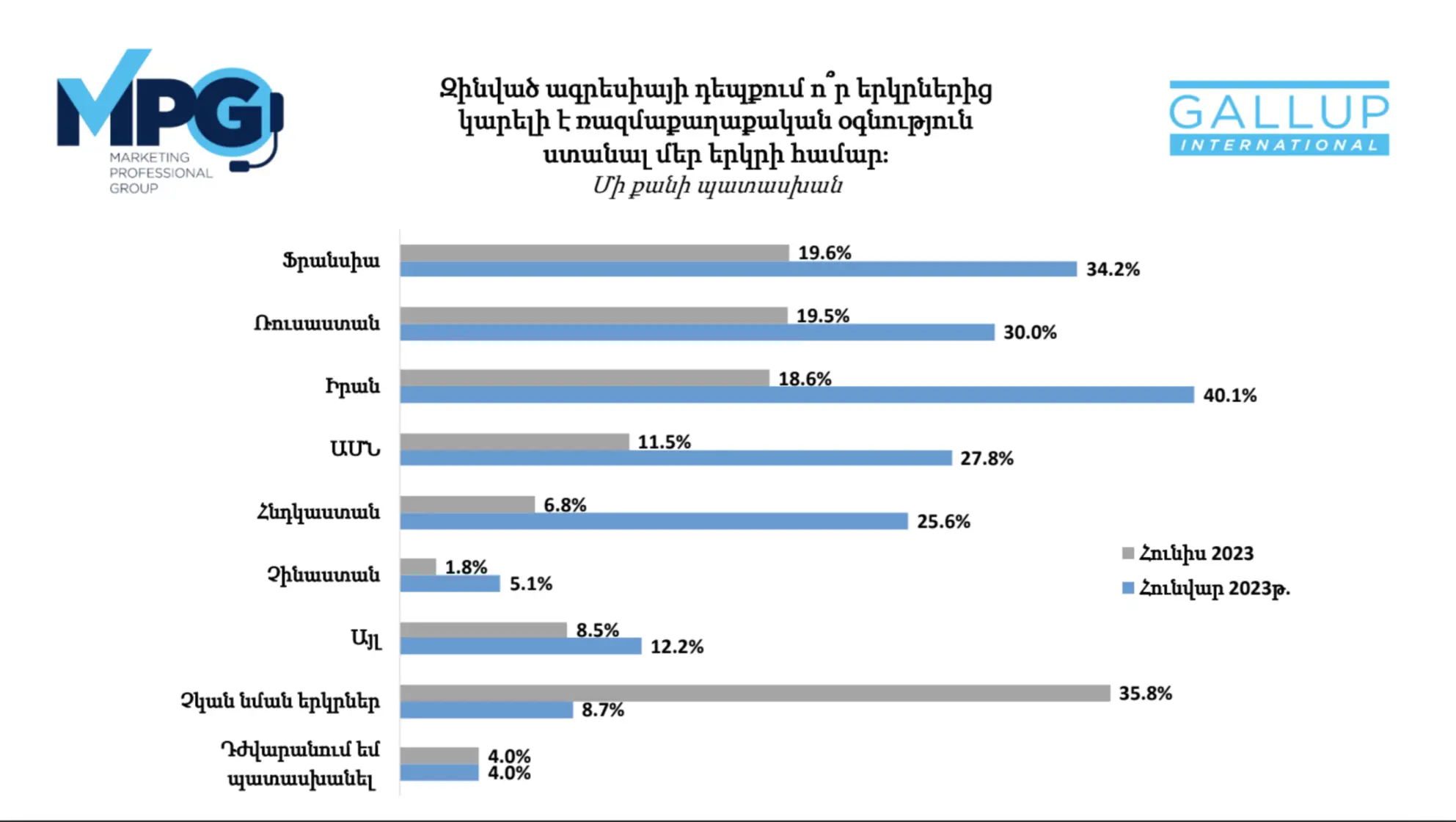
Regarding who can be expected to help Armenia in case of an Azeri attack, here too the geopolitical climate has settled into people’s consciousness. Six months ago people were still saying things like France, Russia, Iran, America. All of those numbers have dropped precipitously, to 30-40% or less, of the previous levels. Now the largest group of respondents say: nobody will come to our rescue.
Questions:
- This is some serious sobering up. We’re sometimes accusing the Armenian people of sleepwalking through the political times, or in a deep slumber since the 2020 war, or whatever. But they’re clearly aware of what is going on, and their views have shifted accordingly. Where can these perceptions lead us?
- Do you think these shifts can affect future elections?
Changing Armenian Symbols
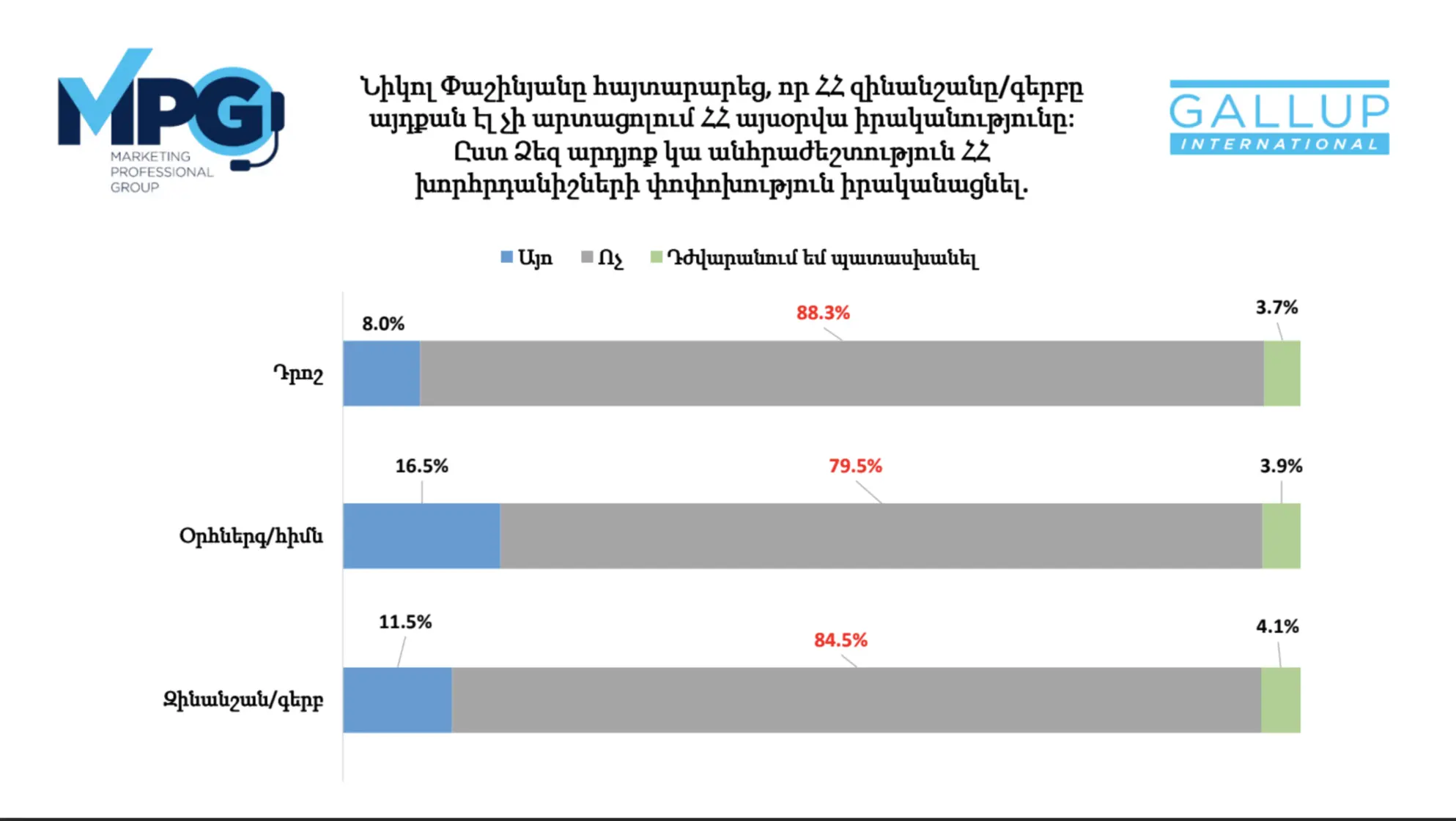
Over the past couple of months Pashinyan has talked about changing some of Armenia’s core symbols. For example, he has dissed our affection and yearning for mount Ararat and said we should care more for mount Aragats; he has proposed changing Armenia’s coat of arms, and so on. As if Pashinyan has no other problems to solve!
The poll clearly indicates a crushing popular disapproval of such ideas.
Question:
- It’s hard to not ask: who, or what is the driver behind such idiotic ideas by Pashinyan?
Pashinyan’s War Testimony
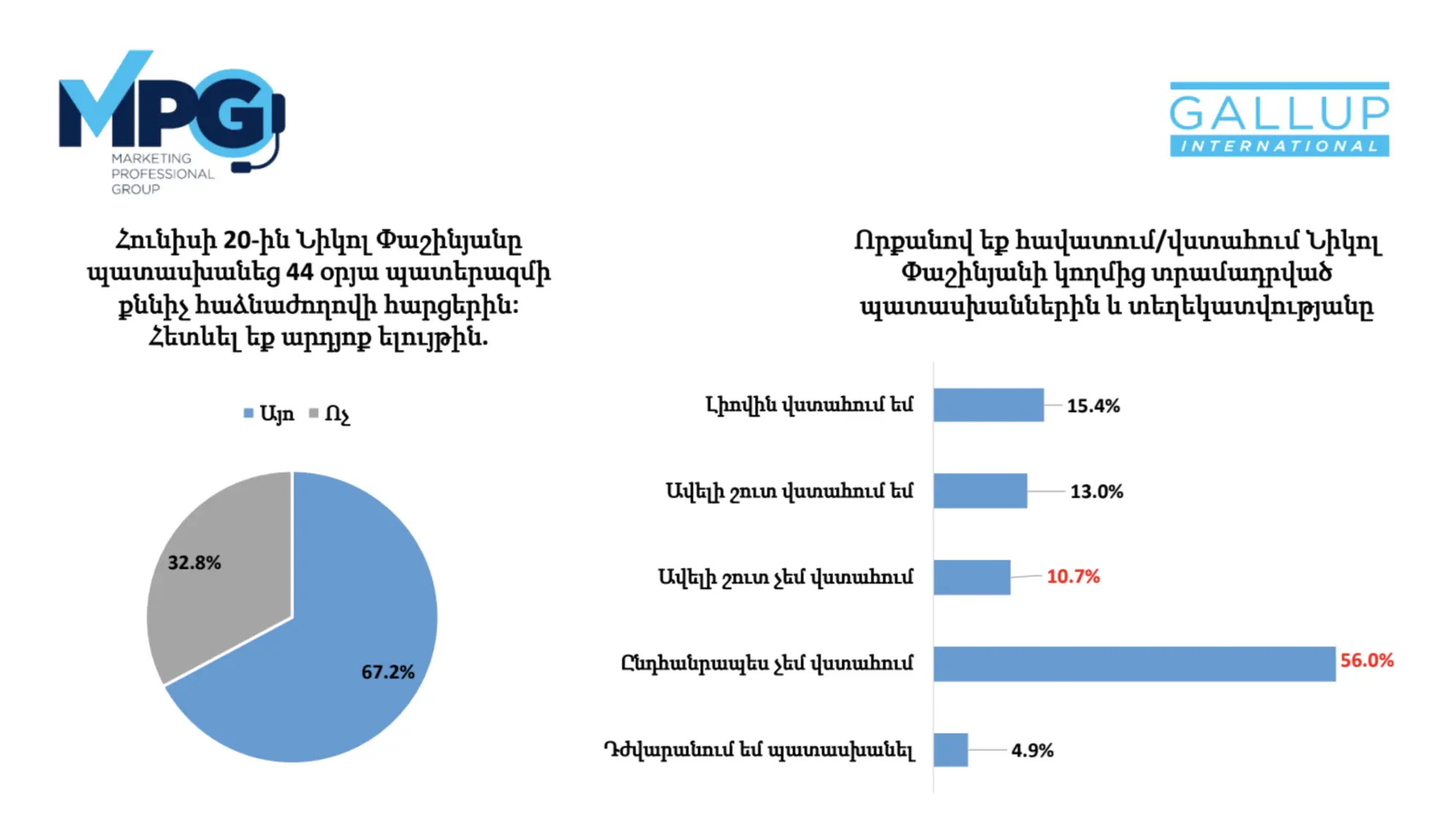
We thought the recent testimony in Parliament by Pashinyan was a well-rehearsed, staged show to propose a narrative that assigned blame for the terrible losses in the 44-day war on everyone except himself. And when we say “parliament”, we mean essentially the ruling Civil Contract party here, because the opposition did not participate.
Apparently we’re not alone, a two-thirds majority of the people responded that they do not trust Pashinyan’s stories.
Question:
- Could these poll results be considered tantamount to a referendum on Pashinyan’s performance during and since the war?
These hearings were prepared and heard by the ruling party, including of course the chairman of the committee on defense and security, Andranik Kocharyan. There is not even a pretense of independence of a war commission. This is the ruling party investigating the ruling party.
Questions:
- Can there be any expectations of truth from such a commission?
- Is there any hope that the Armenian people will eventually get a true war commission to investigate and report on how Armenia got embroiled in the 44-day war, and suffered the outcome that it did?
- Note: we discussed a call by Armenian intelligentsia for an independent war commission two years ago, but as far as we know, no nothing has happened.
Yerevan City Council Elections 2023
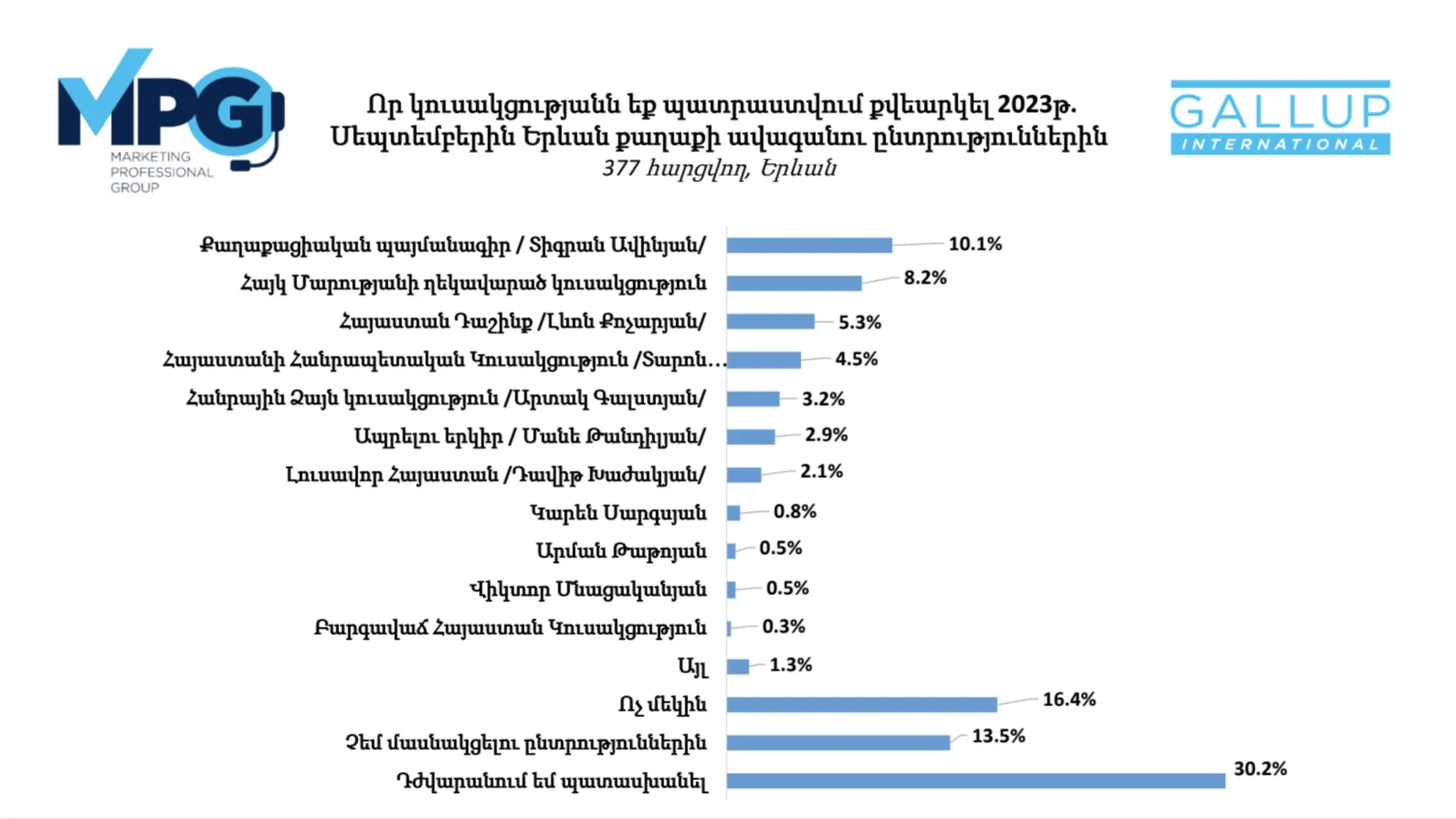
The ruling party, with all of its administrative resources in full application, is barely getting 10% for its candidate Tigran Avinyan. He’s barely eking out Hayk Marutyan, who was kicked out of his position and the ruling party by Pashinyan 2 years ago.
The real winner here is apathy:
- 16% - Nobody
- 13% - Will not participate
- 30% - Undecided
That’s 59% of respondents who are not committed to a known candidate.
Questions:
- On the surface It seems like the race is wide open. Is it?
- What message will these elections send to external observers?
Haya-Qve
We are now in the second or third week of the Haya-Qve petition process meant to criminalize the recognition of Artsakh as part of Azerbaijan and the minimization of the Armenian Genocide. So far, about 15K signatures have been collected and the organizers must collect 35K more for the first phase, which is to request that the parliament introduce and vote on this measure. If the parliament refuses, then more 300K more signatures are needed to force a referendum.
Question:
- Benyamin, what is your opinion about this effort? Should people be worried about this government narrative that if they sign the petition, then war will start?
—
This is a reminder that if you’re a citizen of Armenia and eligible to vote, then please go and sign this citizen’s initiative. Find out more at:
Topics from the Panelists
- Hovik: Hayaqve and government media intimidation and fear mongering
- Benyamin: Armenians increasingly perceived as a people with no redlines
Wrap-up
We hope you found our Week in Review helpful. We invite your feedback and your suggestions, you can find us on most social media and podcast platforms. Thanks to Laura Osborn for the music on our podcasts.
Guests
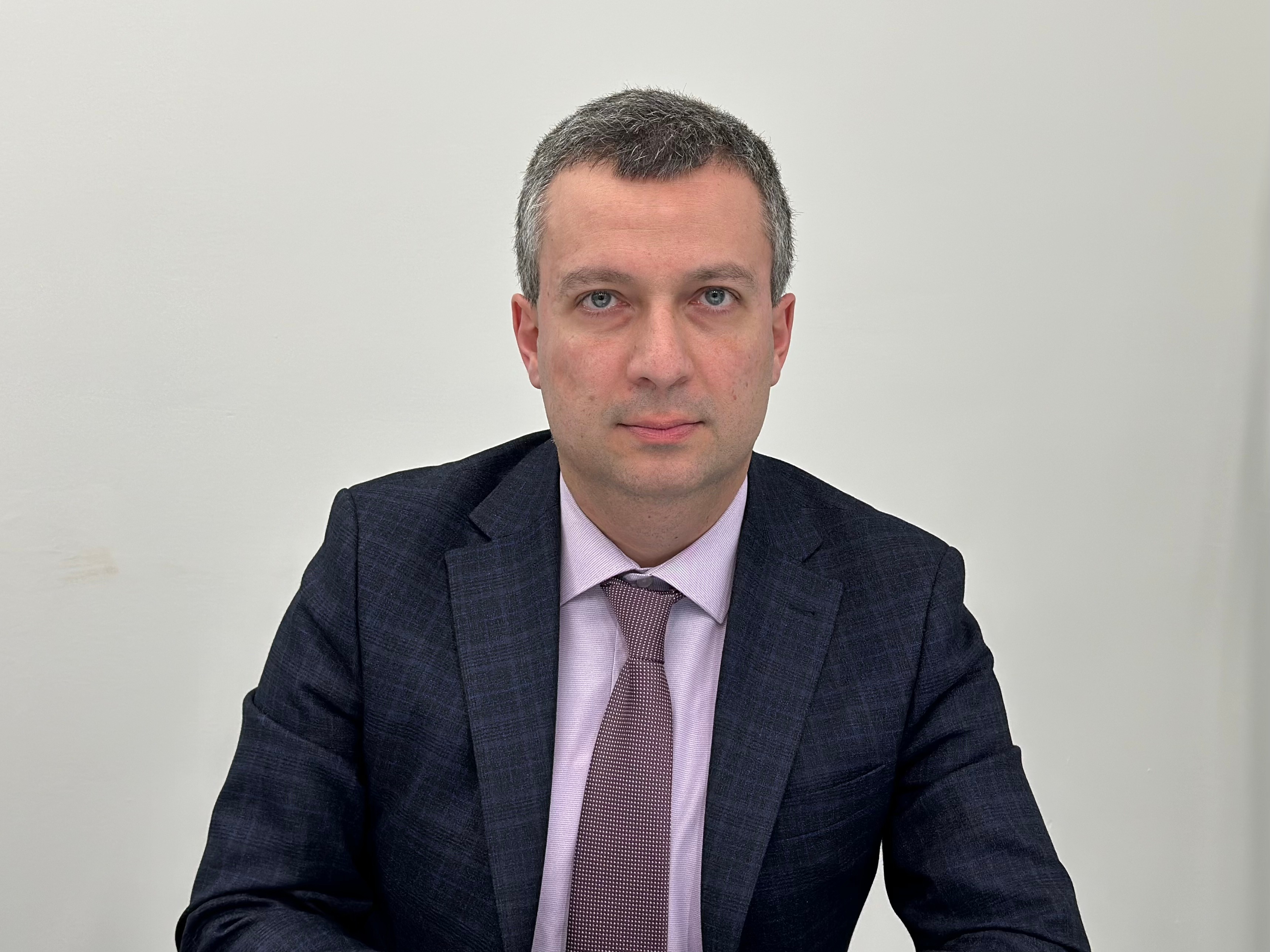
Benyamin Poghosyan
Dr. Benyamin Poghosyan is a Senior Research Fellow at APRI Armenia, a Yerevan based think tank,and the Chairman of the Center for Political and Economic Strategic Studies. He has served as the vice president for research and head of the Institute for National Strategic Studies at the National Defense Research University in Armenia. Dr. Poghosyan was a Distinguished Research Fellow at the US National Defense University College of International Security Affairs. He is a graduate from the US State Department Study of the US Institutes for Scholars 2012 Program on US National Security Policy Making. He holds a PhD in history and is a graduate from the 2006 Tavitian Program on International Relations at Fletcher School of Law and Diplomacy.
Hosts

Hovik Manucharyan
Hovik Manucharyan is an information security engineer who moved from Seattle to Armenia in 2022. He co-founded the ANN/Groong podcast in 2020 and has been a contributor to Groong News since the late 1990s.
Disclaimer: The views expressed by Hovik Manucharyan on the ANN/Groong podcast are his own and do not necessarily reflect the opinions of his employer or any other organization.

Asbed Bedrossian
Asbed Bedrossian is an IT professional, and for years oversaw the central IT enterprise infrastructure and services at USC. His decades of experience spanned across IT strategy, enterprise architecture, infrastructure, cybersecurity, enterprise applications, data center operations, high performance computing, ITSM, ITPM, and more.
Asbed founded the Armenian News Network Groong circa 1989/1990, and co-founded the ANN/Groong podcast in 2020.